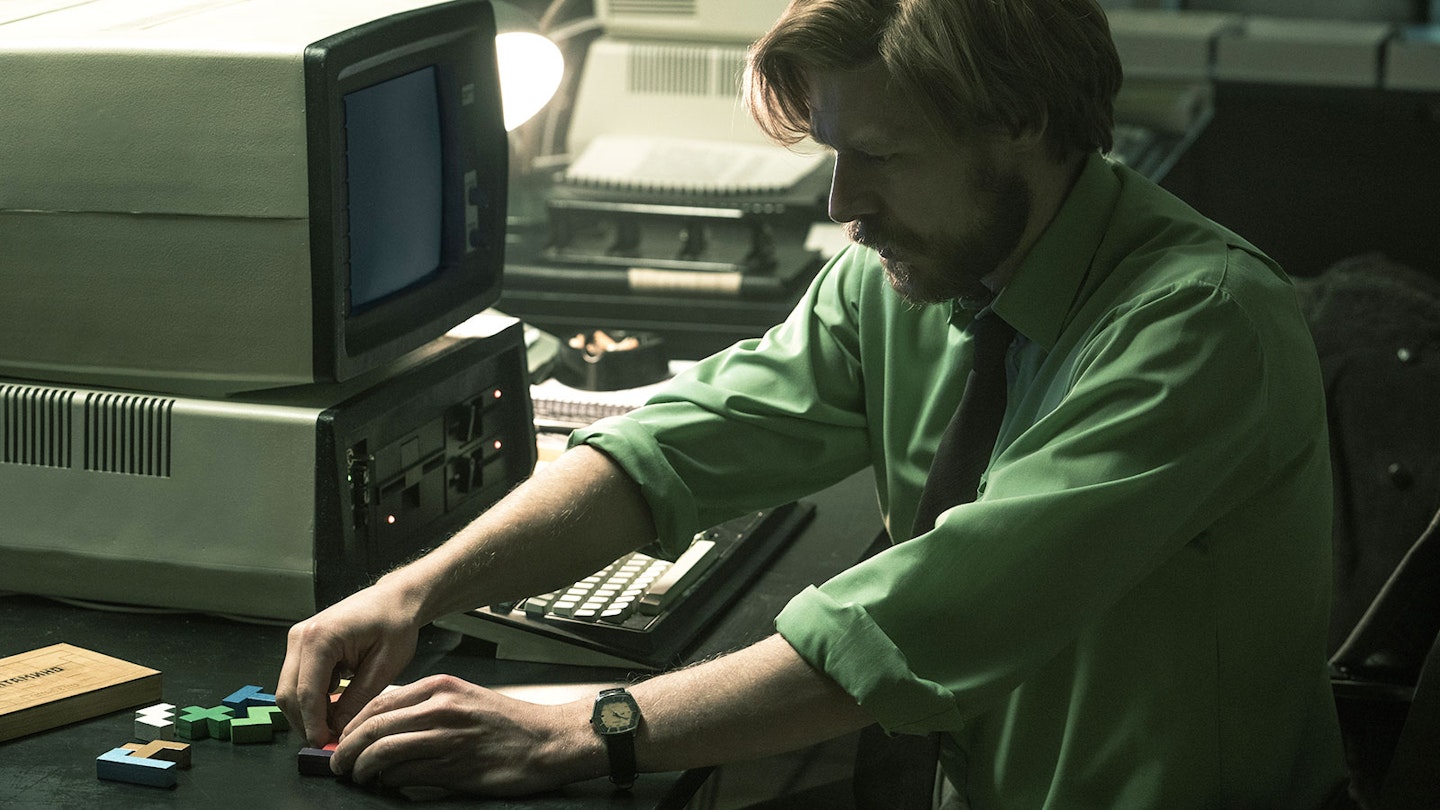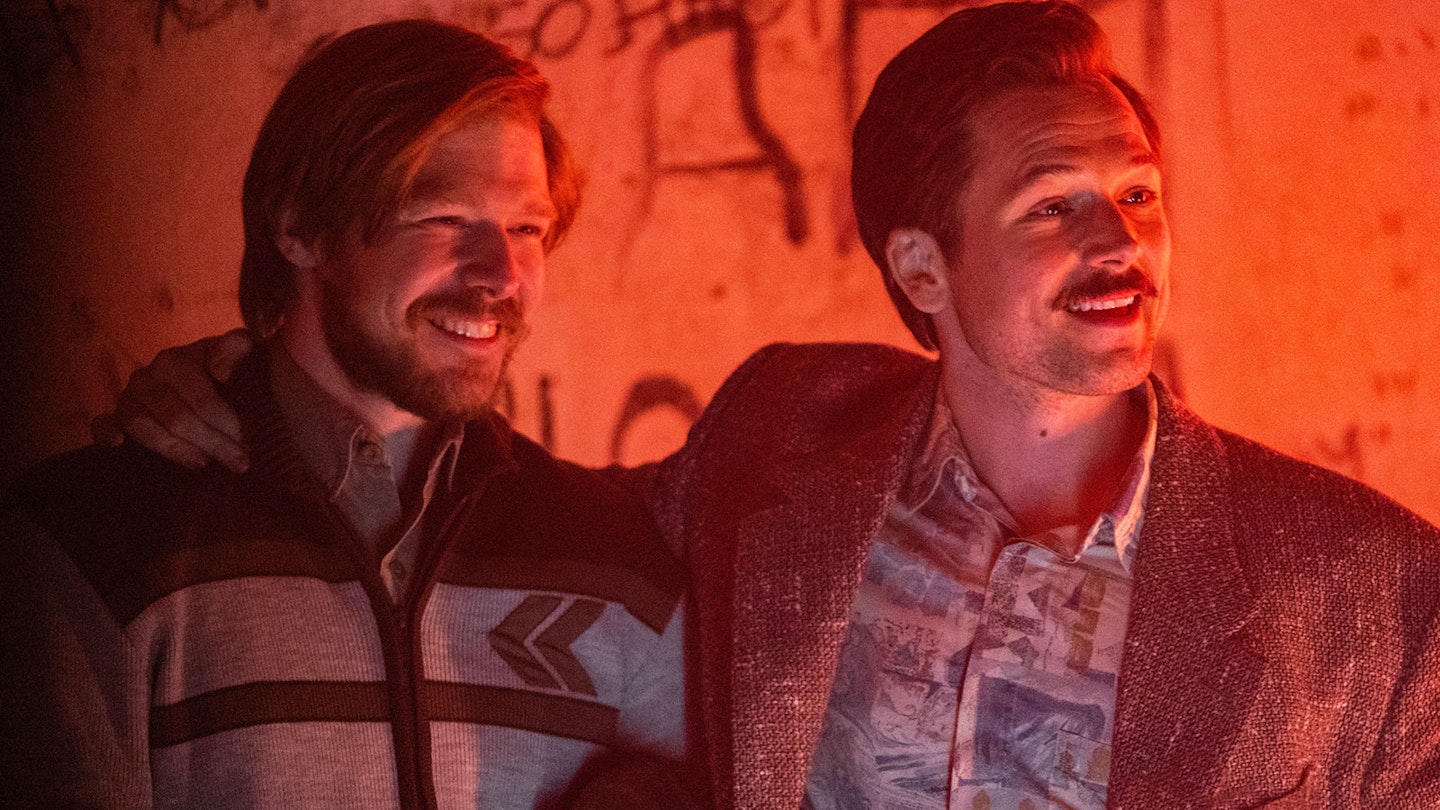With The Super Mario Bros. Movie hitting cinemas almost simultaneously with the release of Jon S. Baird’s Tetris on Apple TV+, it seems Nintendo is having a bit of a cinematic moment. But beyond the fact both films are inspired by popular titles from the Japanese gaming giant, they couldn’t be more different. Thankfully, Tetris is not an animated comedy-adventure featuring talking tetrominos who all have to learn to fit together. Instead, it’s a highly stylised biopic about the real-world origin of the game.

Although, that’s not strictly accurate. While Baird’s film does briefly cover the creation of Tetris, conceived by Russian programmer Alexey Pajitnov (Nikita Efremov) in 1984, it is actually hooked on Henk Rogers (Taron Egerton), the plucky businessman who ultimately made his fortune by securing the console rights to the game and convincing Nintendo to package it with their revolutionary new device, the Game Boy. Rather than predominantly featuring scenes of a nerdy Russian sat at his computer screen, it actually mostly involves men negotiating over contracts in meeting rooms. Kudos to Baird and writer Noah Pink, then, for somehow managing to keep the thing lively, snappy and engaging throughout.
The film’s appeal is also testament to its makers’ ability to find and build comedy-tinged tension from such potentially dry material.
This is partly achieved through Baird’s eye-catching meta device of having 8-bit graphics dance around the screen, complementing and at times blending with the action. Although a tad overused, this has the handy effect of diffusing the reality, allowing us to accept more readily, for example, the spy-thriller preposterousness of Henk getting into a frantic car chase with the KGB hot on his heels, as the screeching vehicles dissolve into retro computer animation and back again.
But the film’s appeal is also testament to its makers’ ability to find and build comedy-tinged tension from such potentially dry material. One extended, superbly edited sequence presents three concurrent meetings in three different rooms, whose swinging and slamming doors almost evoke a French bedroom farce. Meanwhile, the Cold War backdrop adds a momentous dramatic edge, with the inclusion of recognisable historical figures (including tabloid-owning swindler Robert Maxwell, played by Roger Allam under a ton of prosthetics) throwing in some true-life weight.
However, while the situation does darken and intensify for the irrepressible Henk, whom Egerton infuses with boyish charm, the tone always toggles back to the lighter side, with the plot leaning into the unlikely culture-clash friendship between Henk and Alexey, and building to a punch-the-air, we’re-in-the-money climax.
All these years after the fall of the Berlin Wall, and the lessons we’ve learned since, it’s kinda surprising to be watching a film that’s basically a feel-good tale about the triumph of Yuppie-driven capitalism. As a result, for all its verve, likeability and stylistic appeal (including a predictably catchy electro score from Lorne Balfe), the moral of this story feels as retro as the game it’s about.
